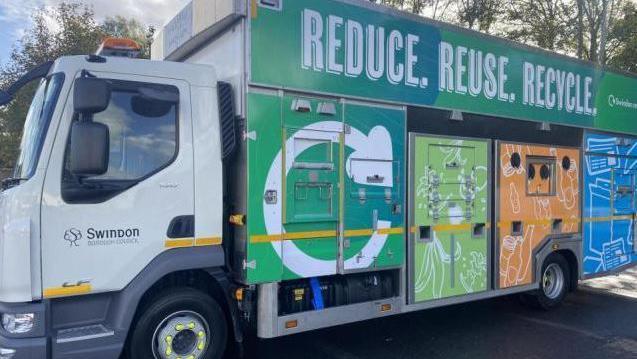How vegetable oil could help council cut emissions

Changing the fuel for vehicles could save 1,703 tonnes of carbon dioxide emissions a year, a council report says
- Published
A council could reduce carbon emissions by tonnes if its fleet of vehicles switched to running on vegetable oil, its officers say.
According to a Swindon Borough Council report, the move would save 1,703 tonnes of carbon dioxide emissions a year - the equivalent of an 81% cut in the fleet's output.
However, the report added running all suitable vehicles on hydrated vegetable oil would mean fuel costs rising by up to £150,000.
The report said: "Transitioning the fleet to HVO fuel will contribute to making Swindon greener and better."
Hydrated vegetable oil can be made from sources such as vegetable oils, used cooking oil and animal fats by adding hydrogen and removing oxygen and other impurities, the Local Democracy Reporting Service said.
It can be used directly in engines which normally run on conventional diesel.
In 2024, the council's diesel fleet of lorries, vans and cars emitted 2,194 tonnes of carbon dioxide - which is three times the emissions from heating and lighting 11 of the council's buildings.
The report said another alternative would be to buy electric refuse vehicles, but this would be "significantly more expensive" and "not viable".
No final decision has been made.
Get in touch
Tell us which stories we should cover in Wiltshire
Follow BBC Wiltshire on Facebook, external, X, external and Instagram, external. Send your story ideas to us on email or via WhatsApp on 0800 313 4630.
Related topics
- Published24 June

- Published22 June

- Published21 June
